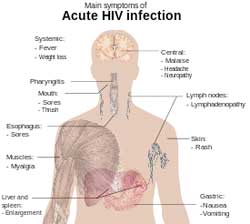Science and Technology Minister Naledi Pandor says research into the prevention of HIV is at the centre of government's strategy aimed at ending the epidemic that has ravaged world communities for years.

Biomedical research and increased invesment is essential to make further strides in the battle to eradicate HIV and Aids in South Africa says Science and Technology Minister Naledi Pandor. Image: GCIS
Addressing the opening of the HIV Research for Prevention 2014 (HIVR4P) conference at the Cape Town International Convention Centre, Pandor said government was willing to invest in partnerships that promote research and innovation that prevents or treats new HIV infections.
She said she was pleased that the conference - which brought over 1,300 delegates including researchers, academics and scholars to Cape Town - was being held in South Africa for the first time.
"We believe that it is absolutely vital that more and more attention is paid to biomedical research into HIV prevention.
"As a department, we are encouraging investment in research activities by African governments themselves because we believe that as Africa we must take responsibility for ensuring that we have dedicated research in this field," she said.
Pandor said the conference is aimed at sharing and debating the latest advances in the scientific field while promoting critical discussions of the issues that drive intervention-specific and biomedical prevention research, discovery, development and implementation.
SA has the highest number of people living with HIV and Aids
She said that to date, 35m people were currently living with HIV and Aids, and that most people living with the disease were in South Africa.

An illustration of the body showing where it is most vulnerable to HIV infections. Image: Wikipedia
According to a survey by the Human Sciences Research Council, 400,000 new HIV infections occurred in South Africa in 2012, bringing to the total number of infected people to 6.5m - 1.2m more than in 2008.
Pandor said these figures could not be ignored and that her department in partnership with the Department of Health has prioritised research in means of prevention.
"We believe as Africa we must take responsibility for ensuring that we have dedicated research into for a wide range of scientific fields and in particular, that we must begin to assume responsibility both solving these problems," she said.
"We must invest in young people, invest in young researchers, create the infrastructure and the capacity for us to be able to play a leading role in medicine and science and not simply be a recipient of foreign research," she said.
"Thirty years ago, the global picture was depressing. We were faced with increasing rates of HIV infections and there was very little hope for those with the disease. Today the situation has improved significantly as almost 30 drugs that have been approved for use for people living with HIV and Aids and many more are in in the process of being developed."
She said some of the advances include the prevention of mother to child transmission, male circumcision and pre-exposure prevention.
The Minister also said research has shown that early treatment of infections in HIV positive people can reduce the risk of transmission of HIV, and that the use of ARVs in HIV negative people can reduce the risk of infection.
She said it would take biomedical, behavioural and socio-economic interventions to achieve zero new HIV infections and zero discrimination.
In South Africa, 2.5m people are receiving ARV treatment, which reduced the number of mother to child transmissions and brought down the number of people dying from HIV aids.

































